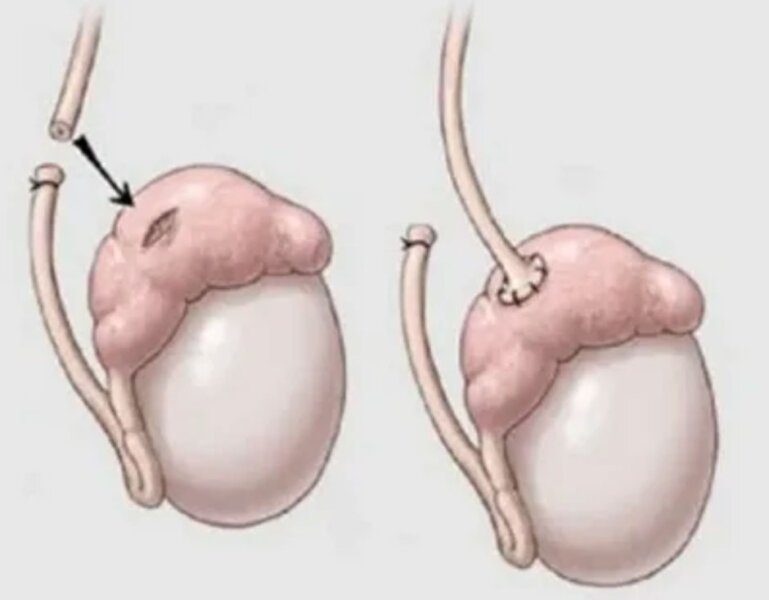Simple Daily Habits To Stay Sharp and Healthy as You Age
Aging doesn’t mean slowing down. It means making lifestyle adjustments to keep your pace and ensure your mind is sharp and your body is strong for years to come.
The good news is that staying sharp and healthy well into your later years doesn’t require you to make grand gestures and completely uproot your life. Staying consistent with small, daily habits is the key to committing to your health long-term.
For example, engaging in brain-boosting activities, staying physically active, and nurturing emotional health can help you continue to feel your best at any stage of life.
Developing the habits we share will enhance your quality of life and ensure greater independence and confidence as you navigate the later years.
Keeping Your Brain Sharp
Your brain is like a muscle — the more you use it, the stronger it gets and stays. Engaging in activities that challenge your mind will help you maintain cognitive function and prevent memory decline. So will staying socially connected and eating brain-friendly foods.
A sharp mind enhances your ability to enjoy life, make informed decisions, and stay engaged with the world around you.
Lifelong Learning
Keeping your brain engaged with stimulating activities helps maintain cognitive abilities. It will also help you prevent memory loss and may reduce the risk of dementia. Try incorporating these habits into your daily routine:
- Puzzles and games:Sudoku, crossword puzzles, chess, and memory games are great ways to exercise your mind and reinforce memory skills.
- Reading and learning:Read books, particularly fiction books, to stimulate your imagination and creativity. Listening to podcasts on new topics can also help expand your knowledge.
- New hobbies:Learning a new language, playing a musical instrument, or trying a new craft can keep your brain engaged. New hobbies can also increase confidence and self-worth, keeping your emotional health intact.
- Online courses and workshops:Engaging in structured learning environments keeps your brain active and enhances problem-solving skills.
- Teaching others:Sharing knowledge with others helps reinforce learning and stimulates the mind in a way that’s different than learning something yourself.
Social Connections
Maintaining strong relationships is essential for mental well-being and cognitive health. Social interactions keep your brain engaged and help reduce stress and loneliness. Meaningful relationships also provide emotional support, encouragement, and opportunities for laughter and joy.
To create deep bonds with others, try:
- Staying in touch:Call, video chat, or meet up with friends and family regularly.
- Joining a group:It doesn’t matter if it’s a book club, a dance class, or a community group.
- Volunteering:Giving back to the community provides a sense of purpose and social connection.
- Attending social events:Participating in group activities, such as game nights or fitness classes, keeps you engaged with others.
Healthy Nutrition for Brain Health
Aside from continuous learning and social connections, eating the right foods can help keep your mind sharp. Be sure to incorporate these brain-friendly foods and nutrients into your meals:
- Antioxidants:Found in berries, dark chocolate, and leafy greens, these help protect brain cells.
- Omega-3 fatty acids:Rich in salmon, walnuts, and flaxseeds, omega-3s support brain health.
- Vitamins B and D:Bountiful in eggs, dairy, and sunlight exposure, these nutrients help with memory and focus.
- Whole grains and leafy greens:These provide essential nutrients and help maintain steady energy levels.
- Healthy hydration:Drinking plenty of water supports brain function and prevents mental fatigue.
Physically Fit for a Strong Body and Mind
Staying active as you age is a must if you want to prevent diseases, boost cognitive function, maintain joint mobility, and improve your sleep. Introduce a training regimen that includes strength training, cardiovascular exercises, and stretching sessions.
Try a brisk walk in the morning, followed by stretching. Or, you could do gentle exercises like yoga, tai chi, or dancing at the gym or in your home. Household chores can also be a workout, cleaning, gardening, or organizing.
If the goal is to prevent falls and maintain muscle mass as you age, try a more structured approach to working out through these exercises:
- Strength training:Use light weights or resistance bands to maintain muscle strength.
- Core strengthening:Exercises like planks and seated leg lifts help stabilize the body.
- Posture improvement:Practicing good posture reduces strain and supports spinal health.
- Low-impact activities:Swimming or cycling provides exercise with minimal joint stress.
You could also take your physical activity outside, as spending time outdoors has numerous benefits for both body and mind.
For example, sunlight exposure helps with vitamin D production, which supports bone and brain health. Walking in nature reduces stress and improves mood. Breathing fresh air enhances relaxation, improves circulation, and boosts mental clarity.
Gardening is another rewarding way to stay active while enjoying fresh air. Or, you could try outdoor sports, like golf, pickleball, or hiking.
Stress Management and Emotional Well-Being
Managing stress is just as important as physical health. A healthy emotional state contributes to better resilience, decision-making, and overall happiness.
Try practicing mindfulness and meditation. A few minutes of deep breathing can lower stress levels. Guided meditation through apps or online videos is another option.
Practicing gratitude is also important. Reflecting on positive aspects of life helps shift focus away from stress.
Write down thoughts and experiences in a journal or diary to enhance self-awareness. Make gratitude lists and jot down things you’re grateful for. Try writing poetry or short stories to give yourself an outlet. Planning daily goals in your journal can also help create focus and motivation.
Don’t forget to spend time engaging in activities that bring you joy, such as:
- Gardening: Cultivating plants can be relaxing and fulfilling.
- Crafting: Creating art, knitting, or woodworking stimulates creativity;
- Music and dance: Playing an instrument or dancing promotes self-expression.
- Cooking: Experimenting with new recipes can be both fun and rewarding.
Finally, limit any negative influences in your life. You can reduce a lot of stress by controlling how much you’re on social media and the news you consume.
Set screen time limits, follow only uplifting and informative content, and spend lots of time away from screens to relax and recharge.
Building a Healthy Daily Routine
A healthy daily routine is the foundation of long-term well-being. You can support both your physical and mental well-being while ensuring that each day is balanced, fulfilling, and enjoyable. Start with a simple routine you can keep up with, such as:
- Wake up, drink a glass of water, and do a short meditation session.
- Eat a healthy breakfast with protein, healthy fat, and complex carbohydrates.
- Stay moving throughout the day, and don’t skip lunch.
- Unplug when you get home and do something you enjoy for 1 hour.
- Do a nightly routine to get — and stay — comfortable while sleeping.
Conclusion
Aging well isn’t about drastic changes but small, consistent efforts that help keep your mind and body functioning well.
Prioritize constant learning to keep your mind active. Engage in physical activity regularly to prevent diseases and injuries. And maintain your emotional health for overall happiness. It’s never too late to start new habits that lead to a joyful, healthier life.






